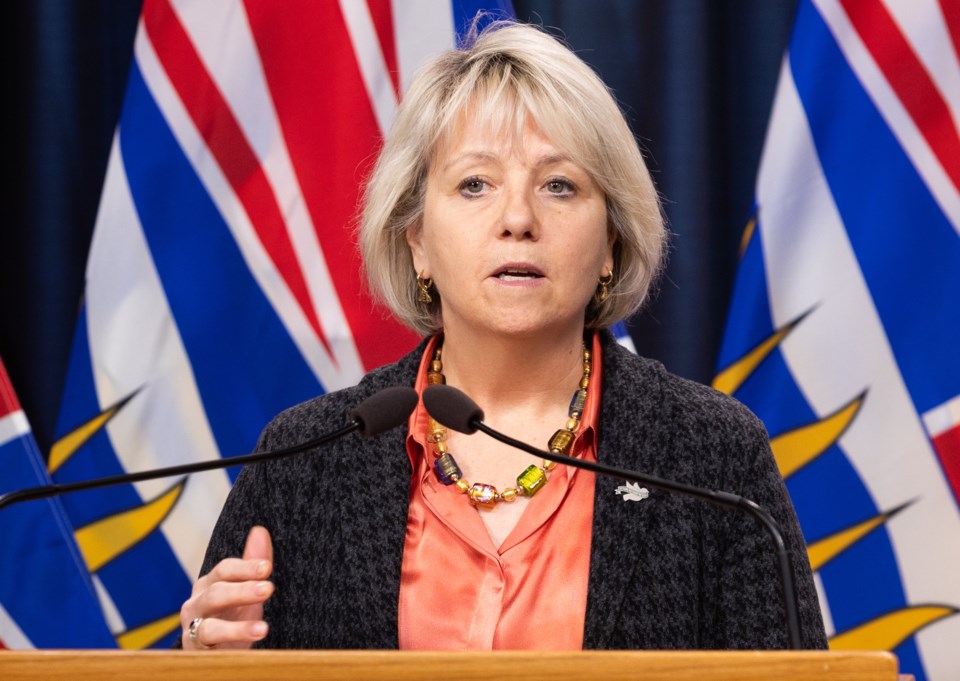We’re in the dog days of summer, which calls for a little bit of column fun.
What exactly are the dog days, anyway?
I’ve always thought of it as that hot, slow period between mid-July and mid-August when nothing much happens, most people are on holiday and the world slows down a bit before hitting the ground running again in September.
A little research shows the phrase dog days has a much deeper meaning. It was named by the ancient civilizations because the dog star – Sirius, the brightest in the night sky – is at its boldest during the mid-summer months. Sirius is part of the constellation Canis Major, or Greater Dog, thus the dog star. When Sirius shone brightest, the ancients knew plants would begin to wilt, a harbinger of the fall and winter to come. Thus, the dog days of summer are those days just before the weather begins to shift.
What else is happening? Well, Dr. Bonnie Henry says the COVID-19 public health emergency is over and non-vaccinated health care workers may reapply for work, the number of opioid deaths from the toxic drug crisis is lower this year, but six people a day are still dying in B.C. from poisonings, so that health crisis continues, and inflation has slowed, but anyone who has visited the grocery store lately knows it has not stopped.
My favourite shampoo, for instance, had a regular price of $9.99, but was often on sale for $7 or $8, before the pandemic. Today, the regular price is $13.99 and sometimes it goes on sale for $12.99. That’s an increase in regular price of 40 per cent over four years!
At least the package is still the same size. For so many other products, the package and portion are much smaller, but the price is higher. There’s a cool word for that too: shrinkflation. Manufacturers must stop that!
What’s the deal with tipping? Long ago, I was a waitress at PJ Burger & Sons – some of you may remember the trendy 1980s restaurant which had locations in Richmond and Vancouver. Back then, the expected tip was 10 per cent. Fifteen per cent was marvellous and 20 per cent was unheard of. Today, 20 per cent is expected.
Maybe it's mathematical illiteracy causing this jump, but percentages for tipping have no reason to increase. When the prices of restaurant meals go up, as they very much have in recent years, by default the size of the tip goes up, even if the percentage stays the same.
Let’s think about it. When a burger cost $10, a 10 per cent tip was $1. When a burger costs $20, a 10 per cent tip is $2, but a 20 per cent tip is $4. And that’s not factoring in the debit and credit machines that include the taxes when calculating the tip.
I understand why the percentage for tipping increased when servers had a lower minimum wage, but now the minimum wage has caught up, the percentage has not gone down.
Not only have standard tipping percentages doubled, I find myself asked to leave a tip in many places that never asked before. What’s the standard in a self-serve café, where you order at the counter? Is that also 20 per cent? Why is it the same if I take my own burger to my table or home to eat as it is if someone serves it to me?
Some sources say the origin of the word tip is an acronym of “to insure promptness,” but I’m not convinced. I think it’s more likely related to the sense of a tip in terms of a gift, like “tipping one’s hat” to show respect or gratitude, or even to a “news tip,” which is the gift of secret information given to a journalist.
If tipping is a form of a gift or a recognition that a server is doing work that deserves higher pay than minimum wage, I’m all for it, but also think the amounts should be realistic. Let’s keep it real. Restaurants are already struggling as they grapple with higher food costs and rents; as they are forced to increase menu prices, let’s make tipping fair but not outrageous.
We’re headed into a serious fall, with possible game-changing elections in both B.C. and the United States that could be subject to disinformation, outright lies and any manner of political attacks. We should enjoy this lull between times, with some star gazing – Perseid meteor showers, anyone? – some relaxing meals in restaurants where generous, but not crazy tips are left, and some playful replenishment before September comes.
Tracy Sherlock is a freelance journalist who writes about education and social issues. Read her blog or email her [email protected].



